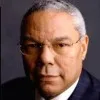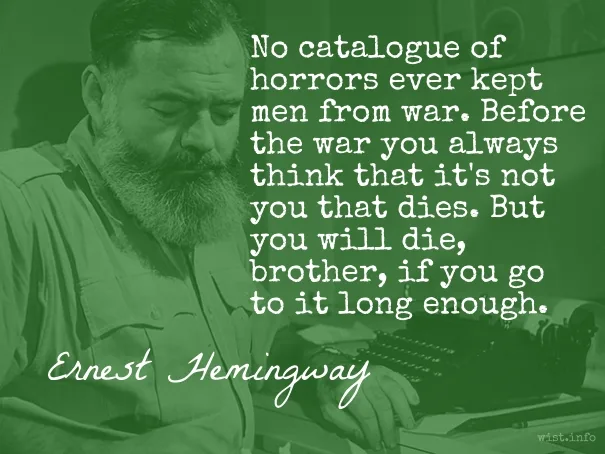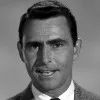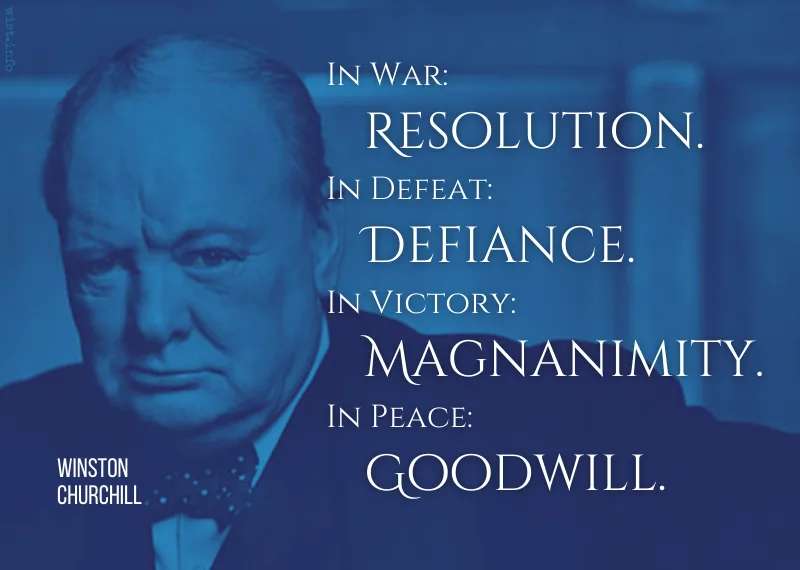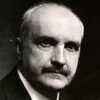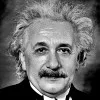Quotations about:
war
Note not all quotations have been tagged, so Search may find additional quotes on this topic.
If you want to know when a war is coming, you just watch the United States and see when they start cutting down on their defense. It’s the surest barometer in the world.
Will Rogers (1879-1935) American humorist
Column (1933-05-16), “Daily Telegram”
(Source)
Written while in Beverly Hills. Reprinted in his Autobiography, Donald Day ed. (1949), in a slightly different form:If you want to know when a war is coming, just watch the U.S. and see when they start cutting down on their defense. It's the surest barometer in the world.
Another variant can be found in Bryan B. Sterling, ed., The Best of Will Rogers (1990):If you want to know when a war might be coming, you just watch the U.S. and see when it starts cutting down on its defenses. It's the surest barometer in the world.
Is it not strange that men are so keen to fight for a religion and so unkeen to live according to its precepts?
Courage (in a soldier) is maintained by a certain anger; anger is a little blind and likes to strike out. And from this follows a thousand abuses, a thousand evils and misfortunes that are impossible to predict in an army during war.
Joseph Joubert (1754-1824) French moralist, philosopher, essayist, poet
Pensées [Thoughts], 1814 entry [tr. Auster (1983)]
(Source)
I could not find an analog in other translations of the Pensées.
I knew from the start that I was bound to be crucified either way I moved. If I left the woman I really loved — the Great Society — in order to get involved with that bitch of a war on the other side of the world, then I would lose everything at home. All my programs. All my hopes to feed the hungry and shelter the homeless. All my dreams to provide education and medical care to the browns and the blacks and the lame and the poor. But if I left that war and let the Communists take over South Vietnam, then I would be seen as a coward and my nation would be seen as an appeaser and we would find it impossible to accomplish anything for anybody anywhere on the entire globe.
Lyndon B. Johnson (1908-1973) American politician, educator, US President (1963-69)
Comment (1970) to Doris Kearns Goodwin
(Source)
Quoted in Doris Kearns Goodwin, Lyndon Johnson and the American Dream, ch. 9 "Vietnam" (1976). Kearns was an intern and staff member in the Johnson White House, and worked with him on his memoirs.
Every religion consists of moral precepts, & of dogmas. In the first they all agree. All forbid us to murder, steal, plunder, bear false witness Etc. and these are the articles necessary for the preservation of order, justice, & happiness in society. In their particular dogmas all differ; no two professing the same. These respect vestments, ceremonies, physical opinions, & metaphysical speculations, totally unconnected with morality, & unimportant to the legitimate objects of society. Yet these are the questions on which have hung the bitter schisms of Nazarenes, Socinians, Arians, Athanasians in former times, & now of Trinitarians, Unitarians, Catholics, Lutherans, Calvinists, Methodists, Baptists, Quakers Etc. Among the Mahometans we are told that thousands fell victims to the dispute whether the first or second toe of Mahomet was longest; & what blood, how many human lives have the words ‘this do in remembrance of me’ cost the Christian world!
We all agree in the obligation of the moral precepts of Jesus: but we schismatize & lose ourselves in subtleties about his nature, his conception maculate or immaculate, whether he was a god or not a god, whether his votaries are to be initiated by simple aspersion, by immersion, or without water; whether his priests must be robed in white, in black, or not robed at all; whether we are to use our own reason, or the reason of others, in the opinions we form, or as to the evidence we are to believe. It is on questions of this, & still less importance, that such oceans of human blood have been spilt, & whole regions of the earth have been desolated by wars & persecutions, in which human ingenuity has been exhausted in inventing new tortures for their brethren.
It is time then to become sensible how insoluble these questions are by minds like ours, how unimportant, & how mischievous; & to consign them to the sleep of death, never to be awakened from it. The varieties in the structure & action of the human mind, as in those of the body, are the work of our creator, against which it cannot be a religious duty to erect the standard of uniformity.
Thomas Jefferson (1743-1826) American political philosopher, polymath, statesman, US President (1801-09)
Letter (1809-09-27) to James Fishback [draft]
(Source)
Jefferson seriously dialed back his actual response, though he kept both in his files; the final letter read, in this passage:The interests of society require the observation of those moral precepts only in which all religions agree, (for all forbid us to murder, steal, plunder, or bear false witness.) and that we should not intermeddle with the particular dogmas in which all religions differ, and which are totally unconnected with morality. in all of them we see good men, & as many in one as another. The varieties in the structure & action of the human mind as in those of the body, are the work of our creator, against which it cannot be a religious duty to erect the standard of uniformity.
Against our traditions we are now entering upon an unjust and trivial war, a war against a helpless people, and for a base object — robbery. At first our citizens spoke out against this thing, by an impulse natural to their training. Today they have turned, and their voice is the other way. What caused the change? Merely a politician’s trick — a high-sounding phrase, a blood-stirring phrase which turned their uncritical heads: Our Country, right or wrong! An empty phrase, a silly phrase. It was shouted by every newspaper, it was thundered from the pulpit, the Superintendent of Public Instruction placarded it in every schoolhouse in the land, the War Department inscribed it upon the flag. And every man who failed to shout it or who was silent, was proclaimed a traitor — none but those others were patriots. To be a patriot, one had to say, and keep on saying, “Our Country, right or wrong,” and urge on the little war. Have you not perceived that that phrase is an insult to the nation?
A nation that continues year after year to spend more on military defense than on programs of social uplift is approaching spiritual doom.
Martin Luther King, Jr. (1929-1968) American clergyman, civil rights leader, social activist, preacher
“Beyond Vietnam,” speech, Clergy and Laity Concerned, Riverside Church, New York City (4 Apr 1967)
(Source)
Reprinted (or the phrase repeated) in Where Do We Go from Here: Chaos or Community? (1967) and The Trumpet of Conscience (1968). See also this.
It is not enough to say ‘We must not wage war.’ It is necessary to love peace and sacrifice for it.
Martin Luther King, Jr. (1929-1968) American clergyman, civil rights leader, social activist, preacher
Where Do We Go from Here: Chaos or Community? ch. 6 (1967)
(Source)
Darkness cannot drive out darkness; only light can do that. Hate cannot drive out hate; only love can do that. Hate multiplies hate, violence multiplies violence, and toughness multiplies toughness in a descending spiral of destruction […] The chain reaction of evil — hate begetting hate, wars producing more wars — must be broken, or we shall be plunged into the dark abyss of annihilation.
O poor mortals, how ye make this Earth bitter for each other; this fearful and wonderful Life fearful and horrible; and Satan has his place in all hearts! Such agonies and ragings and wailings ye have, and have had, in all times: — to be buried all, in so deep silence; and the salt sea is not swoln with your tears.
Thomas Carlyle (1795-1881) Scottish essayist and historian
The French Revolution: A History, Part 1, Book 5, ch. 5 (1.5.5) (1837)
(Source)
As the prospect of violence mounts within Paris on the night of 13 July 1789. The next day was the storming of the Bastille.
Arise, arise, Riders of Théoden!
Fell deeds awake, fire and slaughter!
Spear shall be shaken, shield be splintered,
A sword-day, a red day, ere the sun rises!
Ride now, ride now! Ride to Gondor!J.R.R. Tolkien (1892-1973) English writer, fabulist, philologist, academic [John Ronald Reuel Tolkien]
The Lord of the Rings, Vol. 3: The Return of the King, Book 5, ch. 5 “The Ride of the Rohirrim” [Theoden] (1955)
(Source)
In the Peter Jackson film, the last line is merged with another Theoden line from ch. 6, as he lies dying: "Death! Ride, ride to ruin, and the world's ending!"
Maybe we should always show pictures. Bin Laden, pictures of our wounded service people, pictures of maimed innocent civilians. We can only make decisions about war if we see what war actually is — and not as a video game where bodies quickly disappear, leaving behind a shiny gold coin.
The chief reason warfare is still with us is neither a secret death wish of the human species, nor an irrepressible instinct of aggression, nor, finally and more plausibly, the serious economic and social dangers inherent in disarmament, but the simple fact that no substitute for this final arbiter in international affairs has yet appeared on the political scene.
What this country needs is a short, victorious war to stem the tide of revolution.
Vyacheslav von Pléhve (1846-1904) Russian Tsarist security director, Interior Minister [Vyacheslav Konstantinovich von Plehve, or Pleve; Вячесла́в Константи́нович фон Пле́ве]
Comment (1903) [tr. Walder (1974)]
(Source)
Regarding the impending Russo-Japanese War (1904-05). Possibly apocryphal; the comment is quoted in the memoirs of Count Sergei Witte, an opponent of Plehve, several years later (and well after Plehve's 1904 assassination). Witte recounted it as a retort by Plehve to General Alexey Nikolayevich Kuropatkin, who accused Plehve of supporting the conflict for adventurist/expansionist reasons.
Russia, though considered much stronger than Japan militarily, ended up losing the war, destabilizing the government and ironically leading to revolutions in 1905 and 1917.
Alternate translations:
- "We need a little victorious war to stem the tide of revolution." [tr. Yarmolinsky (1921)]
- "We need a little, victorious war to stem the revolution." [tr. Harcave (1990)]
- "To contain the revolution, we need a short victorious war." [tr Hodson (2017)]
War is mainly a catalogue of blunders.
Winston Churchill (1874-1965) British statesman and author
The Second World War, Vol. 3: The Grand Alliance, ch. 20 “The Soviet Nemesis” (1950)
(Source)
Specifically, on the USSR failing to form an allied front in the Balkans against Hitler prior to his attack on them.
To this war of every man against every man, this also is consequent; that nothing can be unjust. The notions of right and wrong, justice and injustice, have there no place. Where there is no common power, there is no law; where no law, no injustice. Force and fraud are in war the two cardinal virtues.
Croesus said to Cambyses: That peace was better than war; because in peace the sons did bury their fathers, but in wars the fathers did bury their sons.
Francis Bacon (1561-1626) English philosopher, scientist, author, statesman
Apophthegms, #149 (1625)
See Herodotus.
I would say to the House, as I said to those who have joined this Government: “I have nothing to offer but blood, toil, tears and sweat.” We have before us an ordeal of the most grievous kind. We have before us many, many long months of struggle and of suffering. You ask, what is our policy? I can say: It is to wage war, by sea, land and air, with all our might and with all the strength that God can give us; to wage war against a monstrous tyranny, never surpassed in the dark, lamentable catalogue of human crime. That is our policy. You ask, what is our aim? I can answer in one word: It is victory, victory at all costs, victory in spite of all terror, victory, however long and hard the road may be; for without victory, there is no survival.
Winston Churchill (1874-1965) British statesman and author
Speech, House of Commons (13 May 1940)
(Source)
Churchill's first speech in the House after becoming prime minister. Often paraphrased, "I have nothing to offer but blood, sweat and tears..." Audio records of the speech omit the "It is" in the beginning of the "Victory" section.
So, as you go into battle, remember your ancestors and remember your descendants.
[Et majores vestros et posteros cogitate]
Tacitus (c.56-c.120) Roman historian, orator, politician [Publius or Gaius Cornelius Tacitus]
Agricola, ch. 32 [tr. Acheson, ch. 4, para. 22 (1938)]
(Source)
Alt. trans: "Think of your ancestors and your posterity" or "Think of your forefathers and posterity."
Poor Nations are hungry, and rich Nations are proud, and Pride and Hunger will ever be at Variance.
Jonathan Swift (1667-1745) English writer and churchman
Gulliver’s Travels, Part 4 “Voyage to the Land of the Houyhnhnms,” ch. 5 (1726)
(Source)
Nothing is cheaper and more common than physical bravery. […] Common experience shows how much rarer is moral courage than physical bravery. A thousand men will march to the mouth of the cannon where one man will dare espouse an unpopular cause […] True courage and manhood come from the consciousness of the right attitude toward the world, the faith in one’s own purpose, and the sufficiency of one’s own approval as a justification for one’s own acts.
Hereby it is manifest that during the time men live without a common power to keep them all in awe, they are in that condition which is called war; and such a war as is of every man against every man.
I can imagine no greater disservice to the country than to establish a system of censorship that would deny to the people of a free republic like our own their indisputable right to criticize their own public officials. While exercising the great powers of the office I hold, I would regret in a crisis like the one through which we are now passing to lose the benefit of patriotic and intelligent criticism.
Even cowards gain courage from companionship.
Homer (fl. 7th-8th C. BC) Greek author
The Iliad [Ἰλιάς], Book 13, l. 235 (13.235) (c. 750 BC) [tr. Butler (1898)]
(Source)
Poseidon, appearing as Thoas, talking with Idomeneus. Alt. trans.:
- "We find, / That virtue co-augmented thrives in men of little mind." [tr. Chapman (1611), ll. 218-19]
- "Not vain the weakest, if their force unite." [tr. Pope (1715-20)]
- "Union much / Emboldens even the weakest." [tr. Cowper (1791), ll. 292-93]
- "For useful is the valour of men, even the very pusillanimous, if combined." [tr. Buckley (1860)]
- "E’en meaner men, united, courage gain." [tr. Derby (1864)]
- "Ay, and very cowards get courage from company." [tr. Leaf/Lang/Myers (1891)]
- "Prowess comes from fellowship even of right sorry folk." [tr. Murray (1924)]
- "Even the poorest fighters turn into brave men when they stand side by side." [tr. Rieu (1950)]
- "The worst cowards, banded together, have their power." [tr. Fagles (1990), l. 281]
Money is always to be found when men are to be sent to the frontiers to be destroyed: when the object is to preserve them, it is no longer so.
[On en trouve [l’argent] toujours quand il s’agit d’aller faire tuer des hommes sur la frontière: il n’y en a plus quand il faut les sauver.]
Voltaire (1694-1778) French writer [pseud. of Francois-Marie Arouet]
Questions on the Encyclopedia [Questions sur l’Encyclopédie], “Charity [Charité]” (1770) [tr. Fleming]
(Source)
Referring to the scandalous conditions at the Hôtel Dieu charity hospital in Paris.
(Source (French)). Subsequently folded into later editions of the Philosophical Dictionary [Dictionnaire Philosophique].
But if survival calls for the bearing of arms, bear them, you must. As we all have. Keep in mind only this, that province of combat is not the end, it is simply the means. And the most essential part of the challenge is for you to find another means that does not come with the killing of your fellow-man.
Rod Serling (1924-1975) American screenwriter, playwright, television producer, narrator
Commencement Speech, Binghamton Central High School, Binghamton, New York (28 Jan 1968)
(Source)
Sometimes paraphrased:If survival calls for the bearing of arms, bear them you must. But the most important part of the challenge is for you to find another means that does not come with the killing of your fellow man.
The greatest of human problems, and the greatest of our common tasks, is to keep the peace and to save the future. All that we have built in the wealth of nations, and all that we plan to do toward a better life for all, will be in vain if our feet should slip, or our vision falter, and our hopes ended in another worldwide war. If there is one commitment more than any other that I would like to leave with you today, it is my unswerving commitment to the keeping and to the strengthening of the peace. Peace is a journey of a thousand miles and it must be taken one step at a time.
Lyndon B. Johnson (1908-1973) American politician, educator, US President (1963-69)
Speech (1963-12-17), United Nations General Assembly
(Source)
John Kennedy had used the same "journey" phrase from Lao-tzu early that year, before his assassination.
War is not merely a political act but a real political instrument, a continuation of political intercourse, a carrying out of the same by other means.
[Der Krieg nicht bloss ein politischer Akt, sondern ein wahres politisches Instrument ist, eine Fortsetzung des politischen Verkhers, ein Durchführen desselben mit andern Mitteln.]
Karl von Clausewitz (1780-1831) Prussian soldier, historian, military theorist
On War [Vom Kriege], Book 1, ch. 1 “What is War? [Was ist der Krieg?],” § 24 (1.1.24) (1832) [tr. Jolles (1943)]
(Source)
(Source (German)). Alternate translations:War is not merely a political act, but also a real political instrument, a continuation of political commerce, a carrying out of the same by other means.
[tr. Graham (1874)]War is not merely an act of policy but a true political instrument, a continuation of political intercourse, carried on with other means.
[tr. Howard & Paret (1976)]
There is often confusion between this full sentence and the shorter section heading, which is also quoted:War is a mere continuation of policy by other means.
[tr. Graham (1874) and Jolles (1943)]War is merely the continuation of policy by other means.
[tr. Howard & Paret (1976)]Der Krieg ist eine blosse Fortsetzung der Politik mit andern Mitteln.
[German source]
Every gun that is made, every warship launched, every rocket fired signifies, in the final sense, a theft from those who hunger and are not fed, those who are cold and are not clothed. This world in arms is not spending money alone. It is spending the sweat of its laborers, the genius of its scientists, the hopes of its children.
The cost of one modern heavy bomber is this: a modern brick school in more than 30 cities. It is two electric power plants, each serving a town of 60,000 population. It is two fine, fully equipped hospitals. It is some 50 miles of concrete highway. We pay for a single fighter with a half million bushels of wheat. We pay for a single destroyer with new homes that could have housed more than 8,000 people.
This, I repeat, is the best way of life to be found on the road the world has been taking. This is not a way of life at all, in any true sense. Under the cloud of threatening war, it is humanity hanging from a cross of iron.
When you have prayed for victory you have prayed for many unmentioned results which follow victory — must follow it, cannot help but follow it. Upon the listening spirit of God the Father fell also the unspoken part of the prayer. He commandeth me to put it into words. Listen!
“O Lord our Father, our young patriots, idols of our hearts, go forth to battle — be Thou near them! With them — in spirit — we also go forth from the sweet peace of our beloved firesides to smite the foe. O Lord our God, help us to tear their soldiers to bloody shreds with our shells; help us to cover their smiling fields with the pale forms of their patriot dead; help us to drown the thunder of the guns with the shrieks of their wounded, writhing in pain; help us to lay waste their humble homes with a hurricane of fire; help us to wring the hearts of their unoffending widows with unavailing grief; help us to turn them out roofless with their little children to wander unfriended the wastes of their desolated land in rags and hunger and thirst, sports of the sun flames of summer and the icy winds of winter, broken in spirit, worn with travail, imploring Thee for the refuge of the grave and denied it — for our sakes who adore Thee, Lord, blast their hopes, blight their lives, protract their bitter pilgrimage, make heavy their steps, water their way with their tears, stain the white snow with the blood of their wounded feet! We ask it, in the spirit of love, of Him Who is the Source of Love, and Who is the ever-faithful refuge and friend of all that are sore beset and seek His aid with humble and contrite hearts. Amen.”
But is an enemy so execrable that tho in captivity his wishes and comforts are to be disregarded and even crossed? I think not. It is for the benefit of mankind to mitigate the horrors of war as much as possible.
Thomas Jefferson (1743-1826) American political philosopher, polymath, statesman, US President (1801-09)
Letter (1779-03-27) to Patrick Henry
(Source)
Whatsoever therefore is consequent to a time of Warre, where every man is Enemy to every man; the same is consequent to the time, wherein men live without other security, than what their own strength, and their own invention shall furnish them withall. In such condition, there is no place for Industry; because the fruit thereof is uncertain; and consequently no Culture of the Earth; no Navigation, nor use of the commodities that may be imported by Sea; no commodious Building; no Instruments of moving, and removing such things as require much force; no Knowledge of the face of the Earth; no account of Time; no Arts; no Letters; no Society; and which is worst of all, continuall feare, and danger of violent death; And the life of man, solitary, poore, nasty, brutish, and short.
It is human nature to hate the man whom you have to hurt.
[Proprium humani ingenii est odisse quem laeseris.]
Tacitus (c.56-c.120) Roman historian, orator, politician [Publius or Gaius Cornelius Tacitus]
Agricola, ch. 42 (AD 98)
(Source)
Alt trans: "It belongs to human nature to hate those you have injured."
EDGAR: Know thou this: that men
Are as the time is; to be tender-minded
Does not become a sword.William Shakespeare (1564-1616) English dramatist and poet
King Lear, Act 5, sc. 3, l. 35ff (5.3.35-37) (1606)
(Source)
For myself, I would see the White Tree in flower again in the courts of the kings, and the Silver Crown return, and Minas Tirith in peace: Minas Anor again as of old, full of light, high and fair, beautiful as a queen among other queens; not as a mistress of many slaves, nay, not even a kind mistress of willing slaves. War must be, while we defend our lives against a destroyer who would devour all; but I do not love the bright sword for its sharpness, nor the arrow for its swiftness, nor the warrior for his glory. I love only that which they defend: the city of the Men of Númenor, and I would have her loved for her memory, her ancientry, her beauty, and her present wisdom. Not feared, save as men may fear the dignity of a man, old and wise.
J.R.R. Tolkien (1892-1973) English writer, fabulist, philologist, academic [John Ronald Reuel Tolkien]
The Lord of the Rings, Vol. 2: The Two Towers, Book 4, ch. 5 “The Window on the West” [Faramir] (1954)
(Source)
“It needs but one foe to breed a war, not two, Master Warden,” answered Éowyn. “And those who have not swords can still die upon them.”
J.R.R. Tolkien (1892-1973) English writer, fabulist, philologist, academic [John Ronald Reuel Tolkien]
The Lord of the Rings, Vol. 3: The Return of the King, Book 6, ch. 5 “The Steward and the King” (1955)
(Source)
PEACE, n. In international affairs, a period of cheating between two periods of fighting.
Ambrose Bierce (1842-1914?) American writer and journalist
“Peace,” The Devil’s Dictionary (1911)
(Source)
Originally published in the "Cynic's Word Book" column in the New York American (1904-12-26), and the "Cynic's Dictionary" column in the San Francisco Examiner (1905-01-03).
No loss of flood and lightning, no destruction of cities and temples by hostile forces of nature, has deprived man of so many noble lives and impulses as those which his intolerance has destroyed.
You can’t say civilization don’t advance, however, for in every war they kill you in a new way.
Will Rogers (1879-1935) American humorist
Column (1929-12-23), “Daily Telegram: Will Rogers Has An Idea About Disarmament Plans”
(Source)
But it must be remembered that, in spite of the proverb, it takes in reality only one to make a quarrel. It is useless for the sheep to pass resolutions in favour of vegetarianism, while the wolf remains of a different opinion.
When peace has been broken anywhere, the peace of countries everywhere is in danger.
Franklin Delano Roosevelt (1882-1945) American lawyer, politician, statesman, US President (1933-1945)
Radio Broadcast (1939-09-03) “Fireside Chat”
(Source)
In War: Resolution.
In Defeat: Defiance.
In Victory: Magnanimity.
In Peace: Goodwill.Winston Churchill (1874-1965) British statesman and author
The Second World War, Vol. 1: The Gathering Storm, Epigram, “Moral of the Work,” (1948)
(Source)
The most famous use of the quote, though it can be found as far back as 21 Jan 1921 in Churchill's own hand, and Edward Marsh, his private secretary, suggested it dated back to just after WW I, as a possible war memorial.More information here: CHURCHILL, Sir Winston Spencer (1874-1965). Autograph sentiment signed and dated, 21 January 1921, 'In War - Resolution , In Defeat - Defiance , In Victory - Magnanimity , In Peace - Goodwill', one page, 4°, in a commonplace book further inscribed and signed 'To Nell from Winston S. Churchill 21.1.21', and with one other inscription, contemporary marbled calf, front cover panelled in gilt and blind. Provenance: Roy A. Dalton; and by descent..
Cowardice, as distinguished from panic, is almost always simply a lack of ability to suspend the functioning of the imagination. Learning to suspend your imagination and live completely in the very second of the present minute with no before and no after is the greatest gift a soldier can acquire.
There is a rank due to the United States, among nations, which will be withheld, if not absolutely lost, by the reputation of weakness. If we desire to avoid insult, we must be able to repel it; if we desire to secure peace, one of the most powerful instruments of our rising prosperity, it must be known that we are at all times ready for war.
George Washington (1732-1799) American military leader, Founding Father, US President (1789-1797)
Fifth Annual Message, Philadelphia (3 Dec 1793)
(Source)
A single death is a tragedy. A million deaths is a statistic.
Josef Stalin (1879-1953) Georgian revolutionary and Soviet dictator
(Attributed)
Alternate versions:The actual quote (such as is supported) appears to be "When one man dies it is a tragedy, when thousands die it's statistics." It is found in David McCullough, Truman (1992), said by Stalin to Churchill in Tehran when the latter was concerned over the potential casualties of opening a second front in France prematurely. McCullough cites it to Anton Antonov-Ovseyenko, The Time of Stalin: Portrait of Tyranny (1981).
- "Death of one man is a tragedy. Death of a million is a statistic."
- "One death is a tragedy. A million deaths is just a statistic."
- "When one dies, it is a tragedy. When a million die, it is a statistic."
- "The death of one man is a tragedy, the death of millions is a statistic."
On the other hand, Mary Soames (Churchill's daughter) said in a BBC interview with Andrew Marr (11 Nov 2011) that she overhead Stalin say this to her father at Potsdam, when Churchill was upset over the death of a family friend and then apologized to Stalin given the high number of Russian war casualties.
The earliest mention of the quote and Stalin is a 28 Sep 1958 book review.
Compare to Erich Maria Remarque, Der schwarze Obelisk (1956): "Sonderbar, denke ich, wir alle haben doch so viele Tote im Kriege gesehen, und wir wissen, daß über zwei Millionen von uns nutzlos gefallen sind — warum sind wir da so erregt wegen eines einzelnen, und die zwei Millionen haben wir schon fast vergessen? Aber das ist wohl so, weil ein einzelner immer der Tod ist — und zwei Millionen immer nur eine Statistik." [Strangely, I think we all have seen so many dead in the war, and we know that more than two million of us are unvalued -- why we are so excited because of an individual, and we have two million almost forgotten already? But that is probably so because a single death is always a death -- and two million only a statistic.]
Also compare to a 1925 essay on French humor, "Französischer Witz," by Kurt Tucholsky, German journalist, pacifist, and satirist. He wrote of a diplomat in the French Ministry of Foreign affairs, who said: "The war? I cannot find it to be so bad! The death of one man: this is a catastrophe. Hundreds of thousands of deaths: that is a statistic!" ["Darauf sagt ein Diplomat vom Quai d'Orsay: «Der Krieg? Ich kann das nicht so schrecklich finden! Der Tod eines Menschen: das ist eine Katastrophe. Hunderttausend Tote: das ist eine Statistik!"]
Hampden, on the other hand, was for vigorous and decisive measures. When he drew the sword, as Clarendon has well aid, he threw away the scabbard. He had shown that he knew better than any public man of his time how to value and how to practice moderation. He knew that the essence of war is violence, and that moderation in war is imbecility.
Thomas Babington Macaulay (1800-1859) English writer and politician
“John Hampden,” Essays Contributed to the Edinburgh Review, Vol. 1 (1843)
(Source)
Review of Lord Nugent, Some Memorials of John Hampden, His Party, and His Times (1831).
With malice toward none, with charity for all, with firmness in the right as God gives us to see the right, let us strive on to finish the work we are in, to bind up the nation’s wounds, to care for him who shall have borne the battle, and for his widow, and his orphan — to do all which may achieve and cherish a just and lasting peace, among ourselves and with all nations.
Abraham Lincoln (1809-1865) American lawyer, politician, US President (1861-65)
Speech (1865-03-04), Inaugural Address, Washington, D. C.
(Source)
Concluding words.
Both a final handwritten copy and a galley proof of the speech (cut up by Lincoln for delivery at the podium) include one of the few recorded changes in the speech: the last words "with the world" altered to "with all nations."
When the Egyptians were drowning in the Red Sea, the angels in heaven began to break forth in songs of jubilation, but the Holy One, blessed be He, silenced them: “My creatures are perishing — and ye are ready to sing!”
To delight in war is a merit in the soldier, a dangerous quality in the captain, and a positive crime in the statesman.
A new type of thinking is essential if mankind is to survive and move toward higher levels.
Albert Einstein (1879-1955) German-American physicist
“Atomic Education Urged by Einstein,” New York Times (25 May 1946)
This may be the source of some otherwise unsourced Einstein quotes:Einstein revisited this theme in "The Real Problem Is in the Hearts of Men," New York Times Magazine (23 Jun 1946): "Many persons have inquired concerning a recent message of mine that 'a new type of thinking is essential if mankind is to survive and move toward higher levels.' [...] Past thinking and methods did not prevent world wars. Future thinking must prevent wars."
- "The significant problems we face cannot be solved at the same level of thinking we were at when we created them"
- "The world we have created today as a result of our thinking thus far has problems which cannot be solved by thinking the way we thought when we created them."
- "The world we have created is a product of our thinking; it cannot be changed without changing our thinking."
- "This problem will not be solved by the same minds that created it."
- "We cannot solve our problems with the same thinking we used when we created them."
This subject brings me to that vilest offspring of the herd mind — the odious militia. The man who enjoys marching in line and file to the strains of music falls below my contempt; he received his great brain by mistake — the spinal cord would have been amply sufficient. This heroism at command, this senseless violence, this accursed bombast of patriotism — how intensely I despise them! War is low and despicable, and I had rather be smitten to shreds than participate in such doings.
Albert Einstein (1879-1955) German-American physicist
“What I Believe,” Forum and Century (Oct 1930)
(Source)
Einstein crafted and recrafted his credo multiple times in this period, and specifics are often muddled by differing translations and by his reuse of certain phrases in later writing. The Forum and Century entry appears to be the earliest. Some important variants:This topic brings me to that worst outcrop of herd life, the military system, which I abhor. That a man cant take pleasure in marching in fours to the strains of a band is enough to make me despise him. He has only been given his big brain by mistake; unprotected spinal marrow was all he needed. This plague-spot of civilization ought to be abolished with all possible speed. Heroism on command, senseless violence, and all the loathsome nonsense that goes by the name of patriotism -- how passionately I hate them! How vile and despicable seems war to me! I would rather be hacked in pieces than take part in such an abominable business.
— "The World As I See It [Mein Weltbild] [tr. Bargmann (1954)]This topic brings me to that worst outcrop of the herd nature, the military system, which I abjor. That a man can take pleasure in marching in formation to the strains of a band is enough to make me despise him. He has only been given his big brain by mistake; a backbone was all he needed. This plague-spot of civilization ought to be abolished with all possible speed. Heroism by order, senseless violence, and all the pestilent nonsense that does by the name of patriotism -- how I hate them! War seems to me a mean, contemptible thing: I would rather be hacked in pieces than take part in such an abominable business.
— "The World As I See It [Mein Weltbild] [tr. Harris (1934)]

